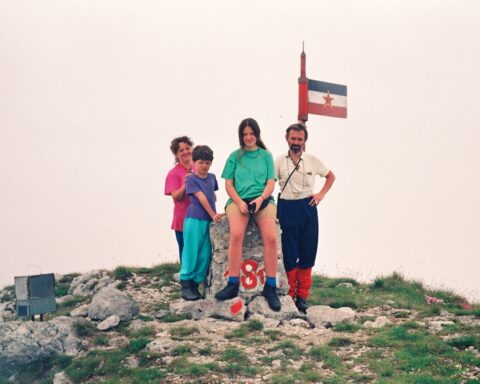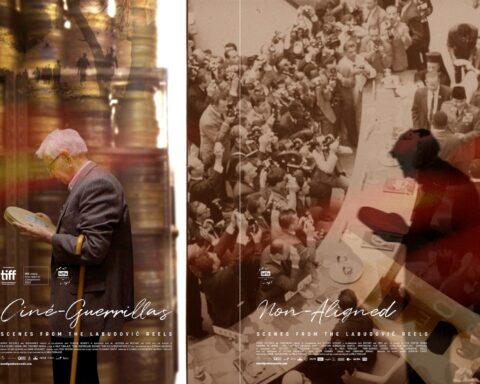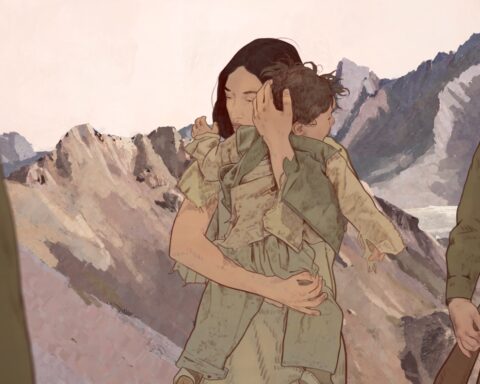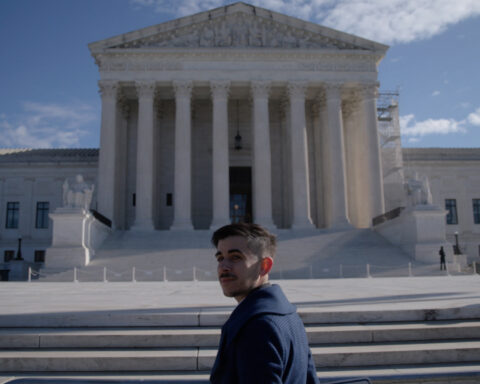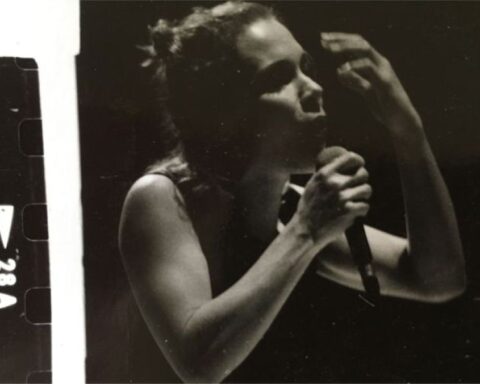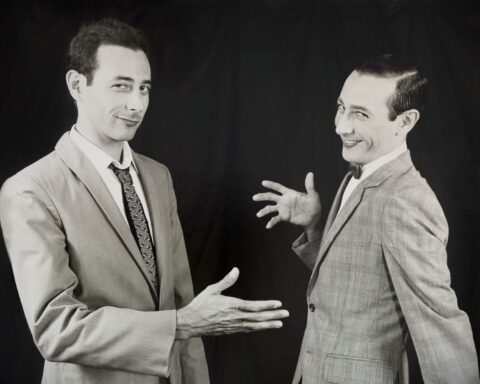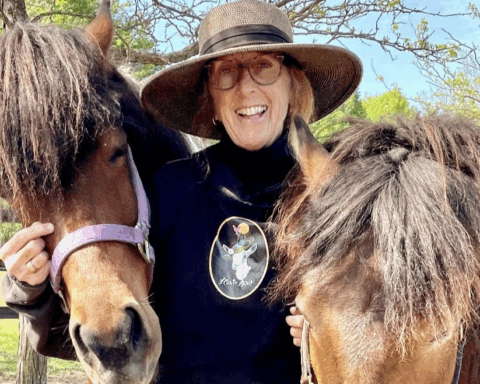“I am the very model of a modern Major-General, I’ve information vegetable, animal, and mineral, I know the Kings of England, and I quote the fights historical.”
— the Major-General’s Song from Gilbert and
Sullivan’s The Pirates of Penzance
Whether one is a vegetable, animal or mineral is a standard opening query in the age-old parlour game of Twenty Questions. Like documentaries, each contest encourages deductive reasoning and creativity. In the game, one player chooses a subject or object but does not reveal it to the others. They are allowed to ask up to 20 questions to identify the secret. Each player takes turns asking a question that can be answered with a simple “yes” or “no.” The answerer replies to each question in turn. Sample questions could be: “Is it in this room?” or “Is it bigger than a breadbox?” Lying is not allowed, as it would ruin the game. This is where 20 Questions differs from most documentaries.
One additional point. As this game of 20 Questions is being played with documentarians, the answers are a lot longer than “yes” or “no.” We’ve all had to fill out grant applications and make pitches, haven’t we?
Ok. Ready to begin?
*QUESTION 1:* Are you an animal, vegetable or mineral?
If I were an Animal, I would be a wise young owl or a very social and intelligent talking dolphin. If I were a Mineral, I would be fire, combustible and useful. If I were a Vegetable or Fruit, I would be an orange because I am Dutch.
*QUESTION 2:* In what category would you place yourself: action, occupation or lifestyle?
I am a lifestyle that has to do with being in action. To experience me you would be sitting in a chair, but not really, because I am about being in contact with the world.
*QUESTION 3:* If you are a living thing, when were you born and were you a good kid?
I was born in 1988 in a small Alpha art house, in the Netherlands. I was the new kid on the block — not socialized, hyperactive, with some attention deficit problems. I stayed awake 24 hours a day. In my very first days, I invited Soviet films and filmmakers home and talked about glasnost, censorship and communism. My city, Amsterdam, was filled with Russians.
*QUESTION 4:* Are you bigger than a breadbox?
A million people have sat in my chairs. Every year 130,000 more visit me. I am as big as the world is small. I am the largest of my kind in the world. Over the course of ten days, more than 250 documentaries are projected on my dozen screens for a huge number of film lovers and 2,300 professionals. For filmmakers, I am a perfect place to screen their films to enthusiastic audiences in sold-out cinemas. I am also an exciting meeting place for directors, producers, buyers, financiers and audiences.
*QUESTION 5:* Do you know famous people?
Yes. Everyone in the audience is famous in their own way. People who populate films are also famous. All inhabit a special life. It may not be that a lot of people know them yet, in the pop culture sense, but they are recognized in their own fields and circles.
*QUESTION 6:* Do you like to travel and, if so, what have you learned from being around the world?
Yes, I like going to Africa, South America, Asia. Now is the time — finally — that many people in those places can make films and tell us their stories. Globalization was, at first, only for Western people. Now the whole world can profit from globalization. All cultures will diversify. I help exchange knowledge with festive places like Surinam, Armenia, Mozambique, Zanzibar and Hunan.
I project films from a wide variety of countries and cultures. Still, it’s clear that documentary culture is dominated by work from the Western world. Developing countries offer some of the most urgent subjects and stories, but when those issues get dealt with in documentaries, it is usually in films made and directed by Western filmmakers.
In order to generate more attention for the voices of filmmakers in the developing world, to stimulate local film
cultures and to turn the creative documentary into a truly global film art, I established the Jan Vrijman Fund in 1998. The one condition is that the applicant must live and work in a developing country, recognised as such by the Organisation for Economic Co- operation and Development. So far, the Fund has given money to 263 projects, 222 of which were for creative documentaries with a total budget close to 2,500,000 euros. The films strike a different note, offer surprising points of view and are often the talk of such festivals as Sundance, Toronto, the Berlinale and Locarno. The Fund stimulates a confronting and fruitful exchange of ideas from all over the world.
*QUESTION 7:* When are you most happy? Do you have a favourite moment?
Yes. When all the passionate and creative makers come visit me and we renew links and friendships. And there are always new ones that come, to refresh the gene pool. That is my favourite moment.
*QUESTION 8:* What are your greatest strengths and weaknesses?
I add something to understanding the media landscape and the world. I am not mainstream. I help filmmakers tell their stories and show them to audiences. My greatest weakness is that I work sohard. There is so much to do, and so much to be done, but it’s hard to raise enough money to do it all.
*QUESTION 9:* Do you believe in the future?
Yes. I am currently looking for the auteurs of tomorrow while still celebrating the films of such directors as Albert Maysles, Werner Herzog, Kazuo Hara, Ulrich Seidl, Raymond Depardon, Kim Longinotto, Alan Berliner and Victor Kossakosky.
The creative documentary is not a journalistic medium, nor is it one made according to traditional methods. On the contrary, it is an art form. Stylistic renewal and a personal look at cinematic possibilities count heavily with me — and they always will.
*QUESTION 10:* Do you multi-task?
Aside from my main “festive” roles, I have four other tasks: the Jan Vrijman Fund, the FORUM, Docs for Sale and educational initiatives. All of these were established in order to improve the international climate for creative documentaries. The Jan Vrijman
Fund offers support to documentary projects and festivals in developing countries. The FORUM is Europe’s biggest co-financing market for international documentary productions. Docs for Sale is an international market where buyers, sales agents and distributors can see a selection from the best creative documentaries of the past year. The educational programmes ensure that the transmission of knowledge isn’t a one-way street, but rather an open dialogue. Together, these activities have propelled me to my current, top-ranked status within the world of creative documentary film.
I first organised the FORUM in 1993. Last year, with 421 participants present, 43 projects were pitched, dozens and dozens of countries were represented, along with more than 75 TV channels and 127 commissioning editors. This year doc professionals will be looking at classic pitches, rough cut pitches and seedling projects that need support. The FORUM is a place to feel the pulse of the international documentary market and a unique opportunity to find financing: more than 90% of all submitted projects end up getting made.
Getting a documentary made is often easier said than done, and the same goes for selling and finding an audience for it once the film is finished. That’s why I founded Docs for Sale, one of the world’s most important markets for creative documentaries — it attracts sales agents, TV stations, distributors and festival programmers. The Docs for Sale catalogue contains some 450 quality film titles each year, broken down into categories. In 2006, 241 buyers from 35 countries attended the market. The films on offer were watched approximately 5,360 times.
Each year, a broad range of educational activities complements the main programme. My academy is for all professionals, but especially for film students and those just starting out in the documentary industry. In the popular Masterclasses, also attended by audiences at-large, auteurs such as Raymond Depardon, Albert Maysles, Kim Longinotto, Ulrich Seidl, Alan Berliner and Victor Kossakovsky lead in- depth discussions of their work, methods and points of view.
My School Programme offers educational institutions an extensive curriculum consisting of special screenings, master classes and distribution of documentaries on DVD. For each title, specific teaching materials are generated. Students can get to work by surfing the website www.docschool.nl, where they can become better acquainted with the genre. Throughout the year, this site keeps teachers up to speed on developments in the field of documentary education and allows them to order the most recent titles.
*QUESTION 11:* What is your fondest wish?
I could wish for a million possible projects to be realized. It would be great to build a multi-purpose Documentary House. Or buy a documentary train and tour across the world making and showing films, with makers from all the villages joining in along the way. Or create a festival without walls. Or run an online channel.
{image_2}
*QUESTION 12:* What do you see yourself doing five years from now?
I will continue as I do, but also on-line. I will live as an annual festival, but also would love to play all the best films in a big doc theatre all year-long — and also work in schools and in other cities with other festivals.
*QUESTION 13:* Do you believe in dreams? If you were a colour, what colour would it be?
Yes, I believe in dreams. I am a multicoloured, real, human and funny dream. I am sitting before a life
screen, watching the world on cosmic beanbags. I have many facets in my dream. Three highly regarded competition programmes; a place for First Appearances for best doc debuts; a Best of the Fest section of documentaries that have recently made an impact at international festivals; a Masters section which follows the work of documentary auteurs; a Panorama of thought-provoking films in form and choice of theme; a ParaDocs programme where the “periphery” of the documentary genre takes centre stage; a feature for Dutch docs called Highlights of the Lowlands; a Jan Vrijman Fund Programme of documentaries made possible in part by the Fund; a Top 10 selection of great docs chosen by a renowned film professional; a Kids & Docs programme of documentaries for ages 8-13; a place to screen films from emerging filmmakers that I help fund and Workshop; a section featuring a Film School in Focus and an Academy Film Programme with the most promising films from academies around the world. In fact, I’m living my dream.
*QUESTION 14:* Do you believe in ethics?
A doc festival is a fine place to map out our fast- changing world, to take a step back and examine social and ethical developments. Whether it’s about exposing current problems or capturing almost forgotten traditions, political commitment is an important pillar for me. It’s a driving force in many of my discussions. A good documentary touches the viewer: he or she is shaken awake, shocked or at least pleasantly surprised. The power of a film to communicate with its audience is essential for me. Documentaries stimulate people to reflect, discuss and ask questions about ethics and the world.
*QUESTION 15:* If you could change history, which invention would you take credit for? Why?
I’d invent cinema because films can change history. Of course, people change history too and so does history itself. Each year, we present one or more special programmes in which a country, a documentary maker or a theme is the focus. In 2006, we presented China Transit, 14 films that highlighted different aspects of the transitions that modern-day China is undergoing. Understanding changes history.
*QUESTION 16:* Can the human race survive the next hundred years?
Yes, by watching documentary films — and learning from them.
*QUESTION 17:* Do you really believe that films can change the world?
Yes, knowledge is power.
*QUESTION 18:* Do you believe in reality?
Yes, but which reality? There are a lot of realities, and I like to reflect them all.
*QUESTION 19:* Have people already asked you these questions? Do you believe in questioning authority? What question have you never been asked, or would like to ask?
N
o. Yes. What was the question?
*QUESTION 20:* OK, this is my last question. I’ve run out of chances. Lemme guess: Are you IDFA?
Yes, I am IDFA, the International Documentary Filmfestival Amsterdam! 2007 is a special year for me. It marks the 20th anniversary of the festival, which, together with the FORUM, Docs for Sale and the Jan Vrijman Fund, is now one of the most influential documentary institutes in the world. To celebrate this, there are a host of special programmes and events at this year’s festival. IDFA will be traveling the world with special anniversary programmes at affiliated festivals in 2008.
Happy 20th Anniversary, IDFA!




